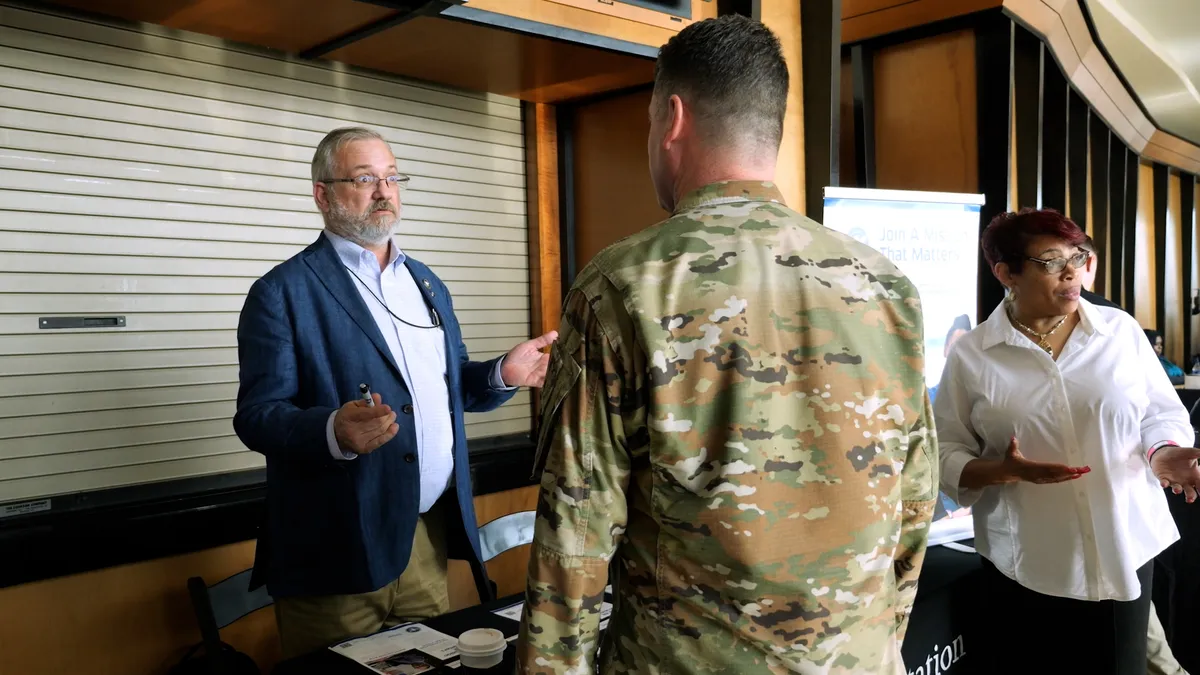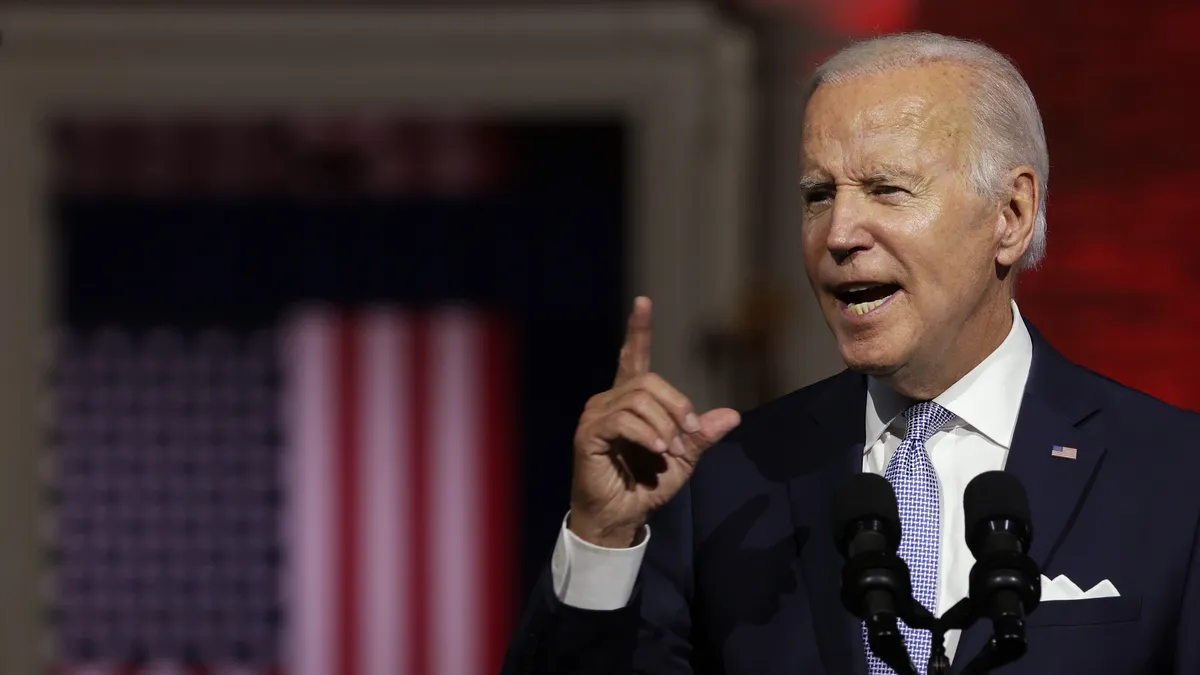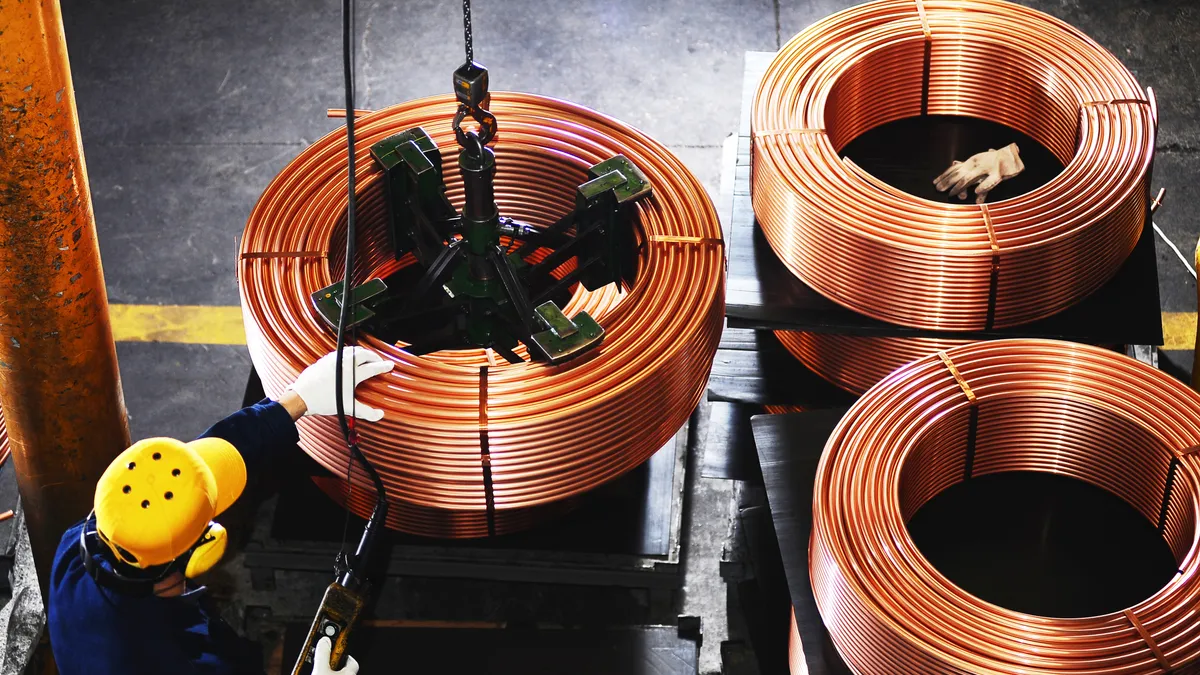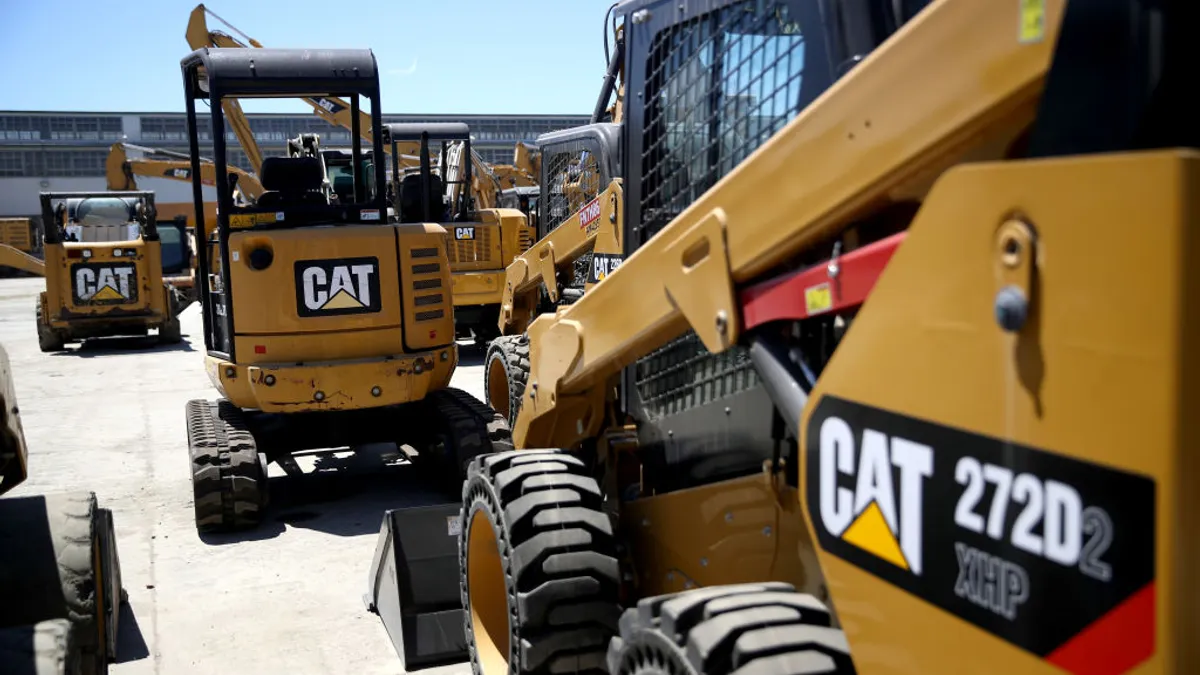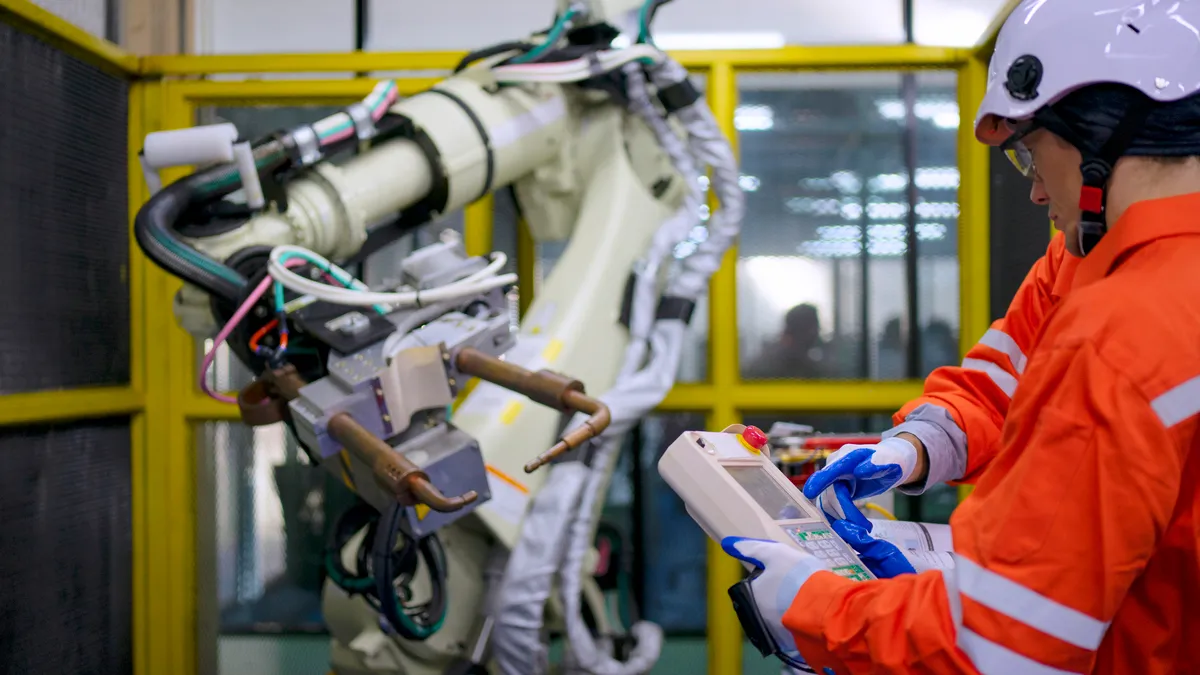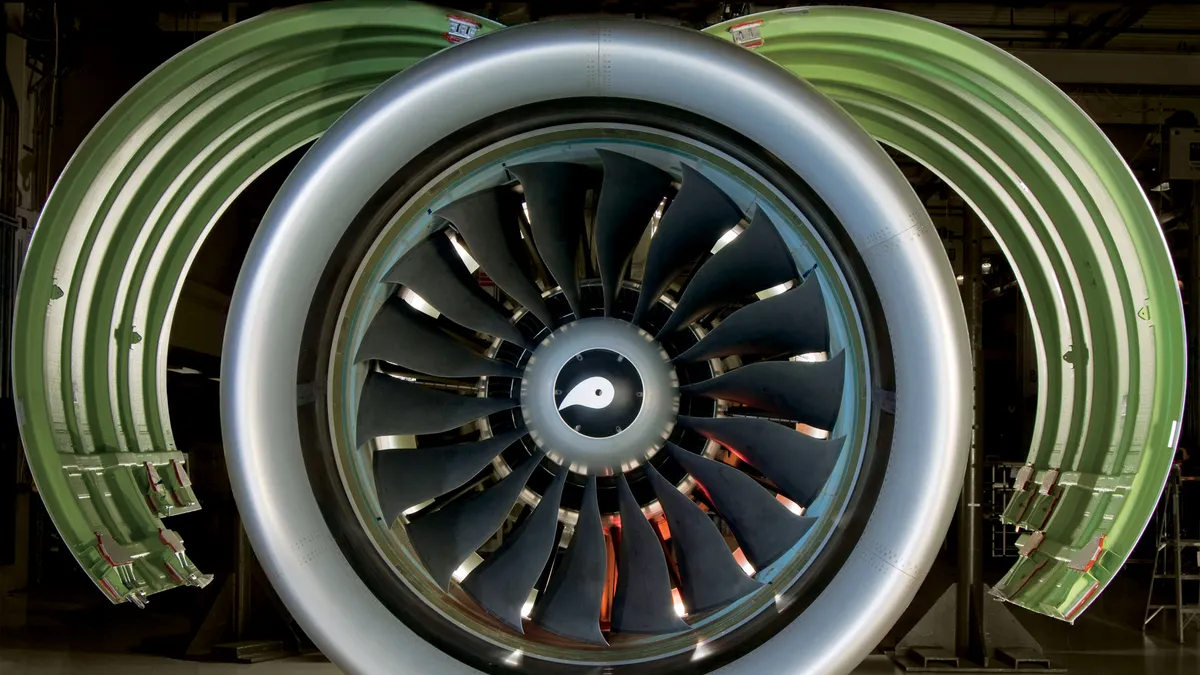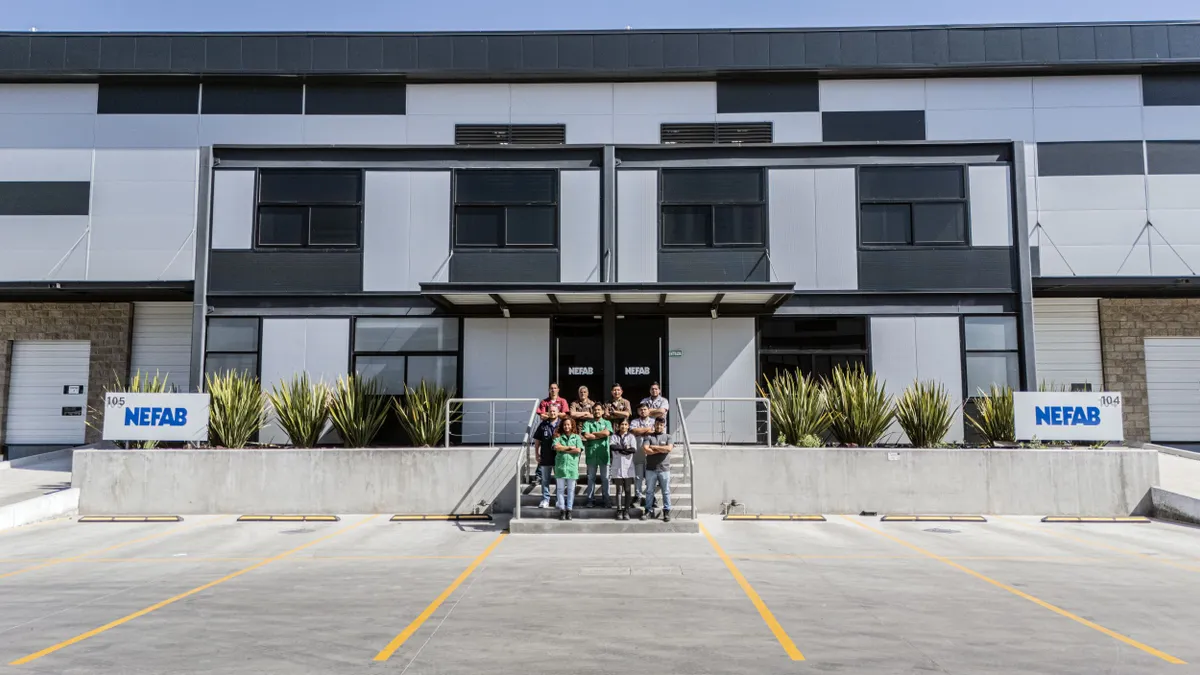Before U.S. Army veteran Jakob Lejman began his job at the Hino Motors Manufacturing USA plant in Arkansas in March 2023, he had never set foot in a production facility.
Lejman worked in logistics throughout his eight-year Army career, after earning a bachelor's degree from the Virginia Military Institute. Most recently as a battalion operations officer, he oversaw hundreds of soldiers working in a wide array of logistics-related specialties like supply, fuel and distribution.
As his end-of-service date drew closer at the end of last year, Lejman said he entered desperation mode, daunted by the challenge of getting a job as a civilian.
“I was used to managing the operations of a large organization that's logistics focused, but I didn't know really where the job title translated in to the civilian world,” he told Manufacturing Dive in an interview.
It was around that time veteran staffing firms Bradley-Morris and RecruitMilitary reached out to soldiers in Fort Polk, Louisiana, where Lejman was stationed. The two organizations offered to help him build a profile and match the skills he learned and used in the military to jobs in the civilian sector.
Lejman worked with Marine Corps veteran Justin Henderson, SVP of sales at RecruitMilitary, on his job search. By the time Lejman separated from the Army in March, he had secured a job as the assistant manager of production control at Hino, a Toyota subsidiary and supplier.
The story of how Lejman landed at Hino Motors Manufacturing is one of many that shows how veterans can succeed in manufacturing careers. After all, industry leaders say companies are looking for skilled and trainable workers who can problem solve, lead or work in a team and who understand safety culture — qualities many veterans already have.
“When Hino took a chance on me, they had somebody who had zero experience inside of a manufacturing facility,” Lejman said. “And they were taking a chance on me as a leader and saying, ‘We can give you the knowledge and skill set to lead in manufacturing, but you have to be a leader first.’”
How military roles align with manufacturing careers
Veterans are almost uniquely qualified to take jobs in manufacturing, said Amy Thomas, national director of military and veterans initiatives of the Manufacturing Institute's "Heroes MAKE America” program.
“If you look at safety, maintenance, communications, logistics, I mean, these are all experts coming out of the military with these qualifications that they learned in the military,” Thomas said.
More than 200,000 service members transition out of the military each year, according to the Department of Labor. More than six million veterans have a bachelor's degree or higher, and another six million have some college education or an associate's degree, according to federal data.
Yet despite the approximately 627,000 manufacturing jobs open for hire as of September, which many companies say they struggle to fill, a 2017 Call of Duty Endowment and Zip Recruiter report found nearly one-third of veterans are underemployed or performing jobs inconsistent with their level of experience.
Roughly 1 in 10 veterans hold manufacturing jobs
Henderson said that in addition to traditional education qualifications, the hundreds of thousands of veterans in the workforce also enter it with technical backgrounds due to their military experience.
“[The military is] kind of that leading trade school, ”said Marine Corps veteran Justin Henderson, SVP of sales at Recruit Military, adding that sort of skill has led more and more manufacturing firms to engage with veteran-focused recruiting firms.
Furthermore, veterans are trainable, have leadership skills, keep calm under pressure, have often worked in diverse cultures due to being deployed or living overseas and understand how to work with different personalities, Thomas said.
“So when you look at all those skills, and you look [at] what manufacturing is looking for on the production line, the supervisory production, supervisor leadership, quality inspectors, safety, engineering, maintenance, they're almost all uniquely aligned,” Thomas said.
Veterans face a hiring obstacle course
Despite their high degree of training, veterans often face issues translating military skills into the civilian corporate sector.
The first obstacle for many is making it past automated resume screens. “If they don't have specific keywords in their resume, it just gets kicked out and they don't even make it past that portion of the application process,” Thomas said.
Manufacturers can also struggle to bring veterans in if the company doesn’t have a veteran or military-adjacent person — such as a military child or spouse — in human resources, Henderson said.
As a result, part of Henderson’s job is to speak with companies on a daily basis to break down the preconceived notion of who veterans are and the value of specific military experience. Veteran resumes can include terms like enlisted or officer and ranks like E3 or E6, all of which signal uniquely valuable skills and experiences that can be hard for non-military individuals to understand.
“Hollywood doesn't do us any favors. We're not all Navy SEALs. We're not all door-kickers. We're not all Delta operators,” Henderson said. “We're admin. We're drivers. And it can be everything from introducing [companies] to the community through a job fair or doing direct hire, or just an overall strategy of how to get your company's brand inside of the veteran community.”
“When you look at all those skills, and you look what manufacturing is looking for on the production line ... they're almost all uniquely aligned.”
Amy Thomas
National Director of Military and Veterans Initiatives for The Manufacturing Institute's "Our Heroes MAKE America program."
On the other hand, veterans can also lack awareness of available manufacturing jobs and which companies are recruiting — but manufacturing companies and their partners can bridge that gap.
“What I like about manufacturing is it adds a level of security not all industries do,” Henderson said. He pointed to long-time RecruitMilitary client Bridgestone as an example, saying people may not always buy cars but they will always need tires, which in turn leads to stable manufacturing jobs.
To help bridge the awareness gap among veterans, Thomas said Heroes MAKE America has program managers at four U.S. Army bases across Kansas, Texas, North Carolina and Georgia where they can talk to a veteran, service member or a military-affiliated person about a career in manufacturing.
They also have training and certification programs, which include weekly tours of manufacturing facilities to showcase how a specific company works and what it produces.
“We work really hard through the Heroes program to increase awareness of these careers and the perception of the careers because a lot of times [workers] are like, 'Oh, I'm going to be working on a production line, [like] Laverne and Shirley,'” Thomas said. “But manufacturing has changed so much, even in the last 10 years, and I think taking them into these plants, they're like, ‘Oh, my gosh, I had no idea.’ And it's just really eye-opening."
For Lejman, working with recruiting firms and gaining a better understanding of manufacturing positions was instrumental as he transitioned into a civilian job. He also said veterans should examine their own resumes to highlight their standout skills and not undersell themselves.
“You've got proven leaders that have skillsets that are used to far more complex situations,” Lejman said. “You've just got to find a way to get [veterans] in the door and make it feel like it's a welcoming door to walk through.”



